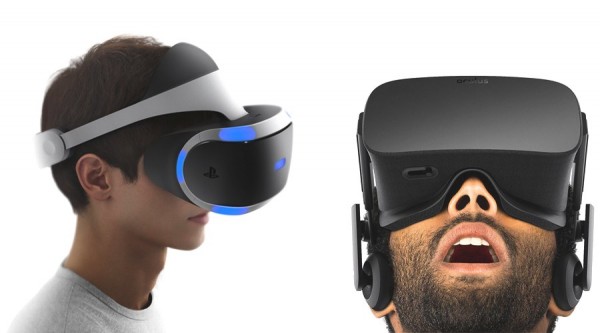
Fox News isn’t the only place that likes to take a small soundbite and spin it. Over the past few days, a lot has been said and made from the comments of Oculus Rift co-founder Palmer Luckey. When talking about PlayStation VR and Oculus in general, Luckey had this to say
It’s also worth noting that their headset isn’t quite as high-end as ours
Out of context, that seems to be a direct jab at Sony and PlayStation VR. After all, Oculus just a week ago revealed their price ($599) which doesn’t include the gaming PC you need to run it, really placing you around $1,500 or higher. On the other hand, the cost of VR from Sony will be considerably less, seeing how you need a PS4 ($350) and PS VR – which, even if it costs the same as Rift, will mean you finish out under $1,000 – and many expect PS VR to cost $399.
Despite all websites’ best efforts at creating some form of controversy around Luckey’s comments, it’s worth putting what he said in context.
I think that there’s not many people who already own a PS4 who don’t own a gaming PC who are going to go out and make that roughly $1,500 all-in investment in the Rift. It really is a separate market. They’re bringing virtual reality to a different group of people who I don’t think were ever really a part of our market anyway.
It’s also worth noting that their headset isn’t quite as high-end as ours — it’s still, I think, a good headset — and the PlayStation 4 is not nearly as powerful as our recommended spec for a PC.
In its entirety, nothing Luckey says is false. Any new PC gaming rig will certainly be more powerful than the PS4, seeing how you can scale those models with the latest CPU/GPU combo and RAM. Yet just because a BMW 7 series exists, it doesn’t make the 5 series any less luxurious. They’re both designed to impress but are targeted at different demographics like this instance.
In fact, Luckey follows up his comments with how Oculus and Sony enjoy a working relationship. Those details after the jump.
When asked about the relationship between Oculus and Sony:
I knew some people at Sony working on VR before I even started my Kickstarter campaign, actually, and we brought them in early on to show them what we were working on, to talk about what the minimum standards were for a good VR experience. What does it take to make something that won’t make people uncomfortable and won’t turn people off of virtual reality?
That’s really the most important thing, is to not poison this well for all of us in the future, and I think they understand that. They also understand the importance of content, and they’ve been doing a lot of work making sure there’s a lot of VR games.
Palmer goes on to say
Well the real battle here at this point isn’t us against them. It’s us versus the public and trying to convince them that VR is worth adopting. That it’s worth wearing something on your head to use virtual reality. That’s the real fight, and I think we’re all fighting that together.
If you’re a believer in virtual reality, it’s actually better that Oculus and Sony are not fighting in the same space with Oculus pursuing the high-end market while PlayStation VR targets the more casual users. This ensures that there is a wide array of options and experiences available for consumers at different price ranges, instead of each company trying to replicate the same content, experience, and price point.
Back to my car analogy: Imagine if there were only the BMW 5 series on the road. Instead, with Oculus commanding the high-end range and other things like Google Cardboard vying for the entry market, there is something for everyone when it comes to giving VR a try.
Note:
I realize a better analogy would be say a Mercedes S Class compared to the BMW 5 series but I didn’t want to start going too far down that road. Instead, I’m using BMW to represent the VR market and the classification of each of its series as a different company.
Note 2:
For those playing at home, I even have a better analogy. If we treat VR like the electric car market, it takes multiple manufacturers at different price points and features to truly jumpstart the category and get us all interested. Oculus Rift is the equivalent of the BMW i8, PlayStation VR is like the Tesla Model S, and things like Google Cardboard are like the Nissan Leaf. They each play a role and help grow the new category for a different demographic that has different needs, but all are vital for its future. Not everybody can afford a $1,500 rig (and not everybody can afford the $150k BMW i8).
Discuss:
Do you think too much was made from Luckey’s comments on PlayStation VR?
[Via IBTimes]
